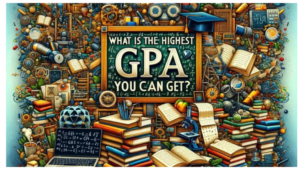
Senior Essay Scoring: Understanding the Evaluation Process
Effective scoring of senior essays is very important in evaluating the writing abilities of students and general school work. The student’s understanding of the subject and their ability to clearly express complicated ideas are both reflected by how well they can grade an essay. This paper will present in-depth information on the major parts of senior essay scoring, the criteria applied for evaluation, and useful tips for both students and teachers in making the scoring process better.
How the Senior Essay Scoring System Works
senior essay scoring involves a careful examination of a student’s writing against set standards. This method not only measures student performance but also provides them with useful feedback and encourages critical thinking. To fully understand how to score a senior essay, it is important to distinguish the factors involved and focus on how each factor impacts the total score.
Selection Criteria for Scoring
Grades in senior writings have various considerations: here are the five most commonly used areas listed below:
Hypothesis: An essay’s central thought is its thesis statement. It tells the reader the subject of the essay and states a strong case or argument. Assessors want clarity, detail, and the ability to be arguable. A good thesis statement not only states the central idea but also enumerates supporting points that are going to be argued in the essay.
Organisation: The structure of an essay has a significant bearing on the easy readability of the essay. The well-organized essay includes a beginning, the body paragraphs and the conclusion. Proper usage of transition words and phrases enhances flow and cohesion in this case. A well-organized essay helps the reader easily track the author’s line of thinking and understand how various points interrelate.
Content: There must be lots of research, with high critical thinking that reflects a rich body of knowledge when scoring this component. There has been a high assessment of good essay grades because a student understands and comes up with robust arguments plus substantiates with the thesis proofs that he makes use of. Moreover, originality and insight ensure that a story is exciting enough to make people read about it.
Language and Style: The use of the right words, variety in sentence structures, and the active person greatly influence grades. Essay writing that is clear and interesting keeps the reader interested. Precise language and a tone suitable for the goal of this essay should be used. Also, variety in sentence structures keeps the reader interested and makes the essay easy to read as a whole.
Importance of Feedback
A large portion of senior essays are graded by providing comments. Teachers who provide constructive criticism help their students see their strengths and weaknesses. Moreover, feedback fosters a growth attitude, which forces students to become better writers with time. For instance, if a student always struggles with thesis statements, specific comments can assist them in making their arguments clearer.
Specific, practical feedback should be given at the right time. Instead of just saying “good” or “bad,” teachers should point out specific strengths and flaws of an essay. For example, they might say, “You have a strong thesis, but you can improve the organization of your body paragraphs by using clearer topic sentences.”
Changing to Better Scoring Methods
Following these best practices makes the rating process better for teachers. Besides enhancing scoring, moving to these ways also helps improve the writing skills of students.
Using standardized scorecards
For consistent scoring, one of the best things you can do is use uniform rubrics. For a more objective evaluation of essays, a rubric lists precise criteria and the score levels that go with them. This method reduces bias and helps students understand what is expected of them. A detailed rubric allows students to see what they need to do to achieve a better score.
- Highly recommended (4) Very good (3) Fair (2)Not too good (1)
- Thesis StatementClearly definedSomewhat clearLacking Clarity
- Logic and organization companyhaphazardStructure is missing
- Detail study of the content excellent research understanding the basics
- Writing and TalkingEnticing and variedFairly clear some awkwardnessVery unclear mechanicsAlmost no mistakesSome mistakes common mistakesNumerous mistakes
- During the writing and judging processes, both students and teachers can use this rubric as a guide.
- Bringing out the most important parts of a good essay makes it easier for students to concentrate.
Checking with Others
The scoring process can be greatly improved by incorporating peer review meetings. Students learn important lessons and improve their ability to think critically by reading and commenting on each other’s writings. Peer comments boost collaboration with others and make one feel like a part of a group. Reading and commenting on other students’ work also teaches them common mistakes they can avoid in their own writing.
For example, providing guiding questions or a checklist that aligns with the rubric for students to refer to during peer review meetings helps them focus on the important factors and give helpful feedback. An example of such a question is asking students to rate the clarity of the thesis statement, the strength of the argument, and the overall organization of the essay.
Self-Reflection
Another effective approach is to get people to evaluate themselves. If you give them the rubric and walk them through the scoring process, students can closely evaluate their own work. This practice helps them find areas where they can improve and encourages them to take responsibility for their own learning. Self-evaluation promotes reflection by letting students think about how well their writing meets the set criteria.
Your students can learn to ask themselves specific questions like
- Does my argument come across clearly in my thesis statement?
- How well is my writing organized?
- Is there enough proof to back up what I’m saying?
- Students can take steps to improve their writing skills by looking at themselves and evaluating their own work.
Boosting Student Performance
The efforts that raise student achievement must be emphasized in order to raise the level of senior essays. Professionals can assist students in writing better and more organized essays by using these methods.
Workshops for writers
Writing classes can help students. Workshops can target special areas of essay writing, such as thesis development, structuring, and diction. Guiding students through the improvement of their writing with focused assistance, teachers will be able to provide them with helpful advice in a workshop customized for common student problems.
Furthermore, classwork can be activities that allow the students to work on special skills, such as the formulation of effective thesis statements and effective use of transition words, among others. For students, doing such exercises gives them confidence and helps them to become better writers.
Reading and Discussing Excellent Essays
Allowing students to read and study excellent essays helps them understand what makes for good writing. They can use the skills they learn from this experience in their own work. Discussing how good essays use transition words, for example, can help students make their writing more logical.
Teachers can help the students to know how to analyze high-scoring essays by showing them various good writings. Students can discuss the strengths of the thesis, the organization of ideas, and the choice of words.
Usually Doing
Practicing daily writing is crucial for better improvement. Students can develop their essay skills in the long run by regularly writing on assigned essay topics. The provision of making revisions allows students to develop their work as per the feedback given. Not only does frequent practice help increase endurance for writing, but also informs what makes a piece of writing good.
The writing schedule can help teachers allow the students to try out different themes and styles by including various types of prompts. The different variety keeps the students interested and challenges them to try out different styles of writing.
Conclusion
The primary purpose of senior essay scoring is not only to grade but also to help students improve their writing skills. By setting clear goals, giving helpful comments, and marking students’ work, teachers can help students master the tricky art of essay writing and reach their full potential. Students improve their grades and get ready for challenges in college and beyond by working on their writing skills.























Post Comment